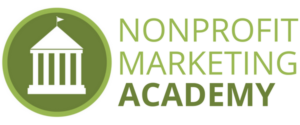If you read any job description for a nonprofit executive director, you will likely see the requirement ‘must be able to secure sponsors’.
Securing sponsorships for fundraising events is a primary revenue stream for nonprofits. It is a mandatory skill for leadership and fundraising positions, and it is also extremely challenging. And rightfully so, because according to the National Center for Charitable Statistics (NCCS), there are more than 1.5 million nonprofit organizations registered in the U.S. The majority of these organizations are vying for sponsor dollars. As soon as you leave a sponsor meeting, there are 10 more nonprofits waiting to take your empty seat and pitch their event.
Traditional sponsorship programs include various levels of contribution aligned with IRS allowable levels of promotion. Today, a sponsor level of $2000 for an event attended by 500-600 people might get a sponsor a table for eight at the event, an honorable mention in the invitation, logo, and website link placement, and a few other niceties.
But what is the real value of that $2000 investment for the sponsor?

Modern Sponsorship Partnerships tie the sponsor’s investment dollars to sales revenue.
Of course, for businesses, it is important to serve and support the community that brings you clients, and showing goodwill looks favorably to your clients. However, there is a way nonprofits can add more value and a greater ROI to sponsor programs. We’re talking about the type of value that impacts the sponsor’s bottom line so much, the tables turn and they approach you for the opportunity year after year.
At the Nonprofit Marketing Academy, we looked at how to approach sponsor relationships more strategically. Doing so requires a shift in the way you have always done things, but we live in a world that is constantly changing. Nonprofits must adapt and change with business climates or forever remain in the nonprofit starvation cycle.
Enter: Integrated Nonprofit Marketing Certification
The Nonprofit Marketing Academy’s new certification program dedicates an entire module to teaching certification candidates how to establish strategic business partnerships and approach sponsors like an advertiser. The lessons teach how to ‘think like a for-profit marketer.’
Course Instructor Jo Lynn Deal says, “There are ways to partner with businesses that will not affect your nonprofit status. If you can produce opportunities that positively impact a business’s sales revenue and they can measure the return on their investment, you’ve got their attention. A more mutually-beneficial partnership can mean a much bigger donation to your nonprofit.”
The Integrated Nonprofit Marketing (INM) course teaches students strategies for creating this kind of strategic sponsorship program, and one of the tactics is to demonstrate your nonprofit’s commitment to marketing your events.
Deal teaches nonprofit leaders to include information about their INM Certification directly in the sponsorship package. She says to put it front and center because it demonstrates your commitment to professional development and the nonprofit’s commitment to marketing. Deal says certification proves you speak their language and you understand their business marketing goals. Sponsor packages should also include a forward-looking editorial calendar and projected advertising spend, along with audience demographics and details about the measurable touchpoints for content placement and sponsor interaction.
The course also teaches an approach called Engagement Marketing where sponsors are immersed in the event in audience-facing roles. Give sponsors the opportunity to help their target audience and you have audience interaction that is extremely valuable to a sponsor.
The basis of the strategic business partner methodology is that it positions events as lead generating opportunities instead of a charitable donation. Doing so provides a stronger return on investment for the sponsor.
If you would like to learn more about how Integrated Marketing is impacting the nonprofit industry, watch the Academy’s leadership webinar introducing the course. The webinar recording is available on-demand in the training center.
Want more training on sponsor program development? Watch our latest on-demand webinar.





